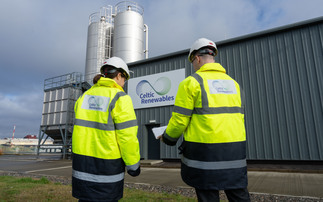Investment bank joins growing number of financial institutions as a member of the Partnership for Carbon Accounting Financials
Bank of America has become the latest major investment bank to commit to publishing the greenhouse gas emissions tied to its loans and investments, having joined the growing number of financial institutions backing the Partnership for Carbon Accounting Financials (PCAF).
Bank of America yesterday confirmed that it had signed up to the initiative, following hot on the heels of Citigroup - which also announced it had joined PCAF this week - Amalgamated Bank and Morgan Stanley.
PCAF, which now comprises 70 financial institutions together responsible for around $9tn of assets worldwide, is working to develop a common methodology to assess greenhouse emissions from financial loans and portfolios, building on the guidelines of the Taskforce on Climate-related Financial Disclosures (TCFDs).
All PCAF members are required, as a first step, to measure and disclose the emissions of their financing activities and set targets aligned with science.
It marks a significant commitment from Bank of America, which was recently identified as the fourth largest financial backer of fossil fuels in the world, having provided $157bn in funding to oil, gas and coal activities since the landmark Paris Agreement in 2015.
However, Bank of America's vice chairman Anne Finucane stressed that the financial industry had a "critical role" to play in accelerating the transition to a low carbon and sustainable economy.
"By joining PCAF, we are helping to drive a consistent framework for institutions to measure financed emissions, as well as providing a useful tool in the management of these emissions, which is a critical component when addressing climate change," she added. "We look forward to collaborating with other financial institutions and partners on this important effort."
Meanwhile, Amalgamated Bank vice president and PCAF steering committee member Ivan Frishberg noted that disclosing emissions associated with loans and investments was a "fundamental building block" for further climate action at financial institutions.
"Counting carbon may seem like a purely technical thing, but we measure so that we can manage, and Bank of America is showing its seriousness in this work through its active collaboration with PCAF," he said.
The PCAF aims to develop a climate risk assessment methodology standard that will "feed into" the work of other global climate initiatives, such as the financial sector disclosures of the Carbon Disclosure Project (CDP), Science Based Target initiative (SBTi) and the Task Force on Climate-related Financial Disclosures (TCFD).
The Net Zero Investment Hub is brought to you in partnership with Schroders, as part of its support for the world's first Net Zero Festival this autumn. All the content on the Hub is fully editorially independent unless otherwise stated.
You can find out more about the Net Zero Festival and reserve your place here.










